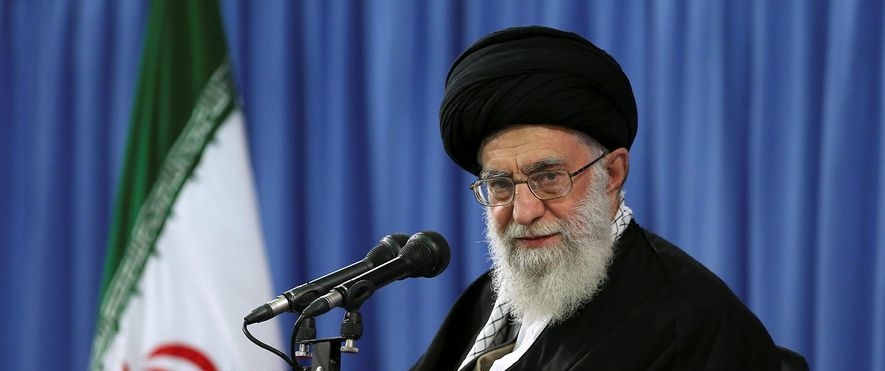Iran won’t ask permission
March 9, 2018 | Expert Insights

Iran’s Supreme Leader Ayatollah Ali Khamenei has noted that the country would not ask “permission” from the US and other Western nations regarding the role it plays in the Middle East.
The comments came after Israeli Prime Minister Benjamin Netanyahu and US President Donald Trump met to discuss Iran’s military activities in the region.
Background
Iran became an Islamic republic in 1979, when the monarchy was overthrown, and clerics assumed political control under supreme leader Ayatollah Khomeini. Iran has been led by a highly conservative clerical elite since the revolution in 1979.
Modern day Iran is considered one of the most oppressive regimes in the world. The government of Iran has been criticized both for restrictions and punishments that follow the Islamic Republic's constitution and law. In 2016, the United Nations General Assembly approved a resolution expressing “serious concern” about Iran’s high rate of executions without legal safeguards, ongoing use of torture, widespread arbitrary detentions, sharp limits on freedom of assembly, expression, and religious belief, and continuing discrimination against women and ethnic/religious minorities, including Baha’is.
Hassan Rouhani won a resounding re-election in May 2017 as voters overwhelmingly backed his efforts to reach out to the world and rebuild the struggling economy. Growth has returned and inflation has fallen since Rouhani took office in 2013. The International Monetary Fund is projecting the economy to expand by 4.2% in the year to March 2018 - it was contracting five years ago. Annual inflation has fallen to 10% from 34%. However, the quality of life for average Iranians continues to be poor. Youth unemployment is high, and a new budget shows subsidy for the poor being cut while the religious establishment is protected.
Iran has played an active role in multiple conflicts taking place in the Middle East including Syria and Lebanon. It has also been accused of harbouring and sponsoring terror outfits. In addition, the status of the nuclear deal is also at stake after US President Donald Trump refused to ratify it. It is currently locked in a proxy war with Israel.

Analysis
When Israeli Prime Minister Benjamin Netanyahu met with US President Donald Trump this past week, the two world leaders reportedly discussed Iran's military activities in Middle East.
“The force behind so much that is bad is this radical tyranny in Tehran,” the Israeli prime minister told the American Israel Public Affairs Committee (AIPAC) conference in Washington on Tuesday. “If I have a message for you today, it’s a very simple one: we must stop Iran, we will stop Iran.
Sayyid Ali Hosseini Khamenei is a marja and the second and current Supreme Leader of Iran, in office since 1989. He has spoken against the role played by US forces across the world and said that Iran would not negotiate with the West regarding its activities in the Middle East.
Khamenei described the presence of US military forces in various regions of the world as "malicious and seditious", and said Iran would not ask for permission from Washington to be active in the Middle East. "We will negotiate with America when we want to be present in America. European countries come [to Tehran] and say we want to negotiate with Iran over its presence in the region. It is none of your business. It is our region. Why are you here?" Khamenei was quoted as saying by his official website.
Meanwhile, President Hassan Rouhani has noted that the nation’s military prowess poses no danger to countries in the Middle East. "Our weapons are meant to promote peace, strengthen stability and security, and to prevent others from invading our country. No one should be concerned about Iran's weapons and missiles," Rouhani said.
Assessment
Our assessment is that Khamenei’s statement indicates that the tense ties between the West and Iran will likely continue to worsen in the near future. The relationship between the US and Iran has deteriorated substantially in 2017. In addition, the conflicts in Syria and Lebanon have resulted in humanitarian crises. If diplomacy is not urgently deployed, the Middle East could witness larger conflicts and even war in the near future.








Comments